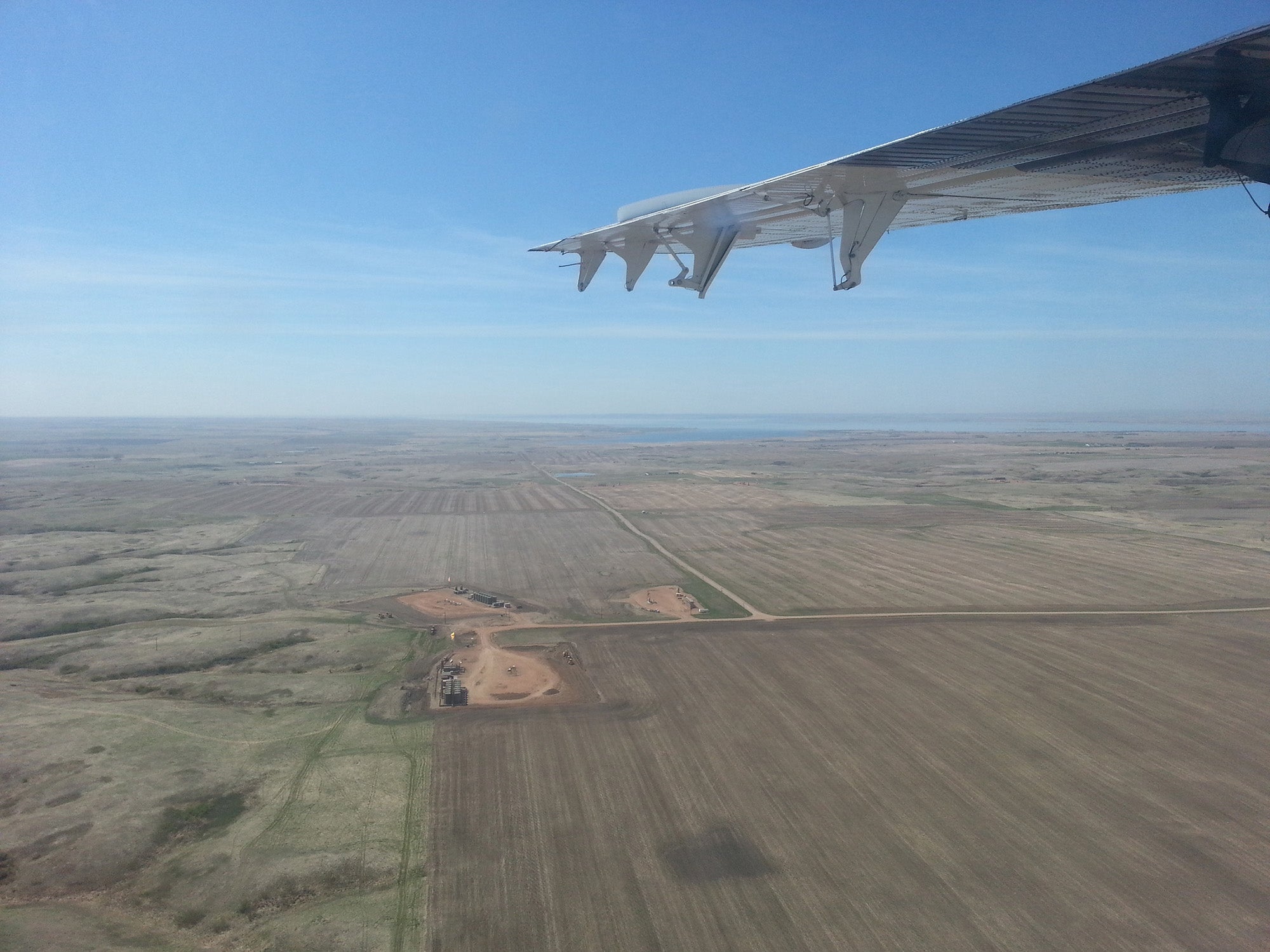Fracking in the US causing global surge in dangerous gas, study finds
Researchers solve 'atmospheric mystery' of why levels of ethane suddenly stopped falling and started rising across the planet

Fracking of shale oil fields in the US is causing a global surge of a gas that causes climate change and creates dangerous air pollution, according to new research.
Levels of ethane in the atmosphere had been falling since the 1980s, but in 2010 a sensor in Europe picked up a surprise increase.
The boom of fracking, a controversial process used to recover gas from within shale by fracturing the rocks, in the United States was viewed as the prime suspect.
Now a single oil and gas field in North Dakota and Montana, the Bakken Formation, has been found to be emitting about 250,000 tons of the gas – about two per cent of the total produced worldwide.
Ethane reacts with sunlight and the atmosphere to make ozone, which at ground-level causes breathing problems, eye irritation and damages crops. If levels get too high, it can prompt official advice to stay indoors. Ethane is also the third largest contributor to human-caused global warming after carbon dioxide and methane.
Researcher Colm Sweeney, lead scientist of the US National Oceanic and Atmospheric Administration’s Earth system research lab aircraft programme, said: "These findings not only solve an atmospheric mystery — where that extra ethane was coming from — they also help us understand how regional activities sometimes have global impacts.
“We did not expect a single oil field to affect global levels of this gas.”
His colleague, Eric Kort, an assistant professor of climate, space sciences and engineering at Michigan University, added that the emissions “directly impact air quality across North America”.
The researchers flew over the 200,000-square-mile basin that includes the Bakken field to monitor levels of the gas in 2014 and have now published a paper detailing their findings in the journal Geophysical Research Letters.
While the Bakken field was found to produce between one and three per cent of global ethane emissions, it made up about two per cent of shale gas production in the US in May 2014.
So if other shale gas operations in the US emit similar amounts of ethane, the total produced as a result of the American fracking boom would be considerable.
However, the researchers said Bakken shale had a “very high composition of raw gas” which helped to explain the “relatively high emissions” of ethane. They said some shale fields might produce a similar amount while others could play only a “modest role” in ethane emissions.
Professor Christian Frankenberg, an environmental scientist at California Institute of Technology and a Nasa researcher who was not involved in the study, told the Washington Post that the research showed the impact that one gas field could have on the planet.
“They’ve basically shown here that a single shale can account for most of the ethane increase that you’ve seen in the past year,” he said.
Tony Bosworth, of Friends of the Earth in the UK, said the British Government should scrap plans for widespread fracking.
“This is another example of why we should be saying no to risky and unnecessary fracking here in the UK – it’s a lost cause," he said.
"Support for fracking is the lowest it has even been according to the Government’s own opinion survey published this week, and North Yorkshire councillors can deliver another blow to an industry in its death throes by rejecting [an application for] fracking in Ryedale three weeks from today.”
Join our commenting forum
Join thought-provoking conversations, follow other Independent readers and see their replies
Comments
Bookmark popover
Removed from bookmarks